TikTok Group 'The Black Menaces' Are Challenging Their Peers to Think Critically About Race
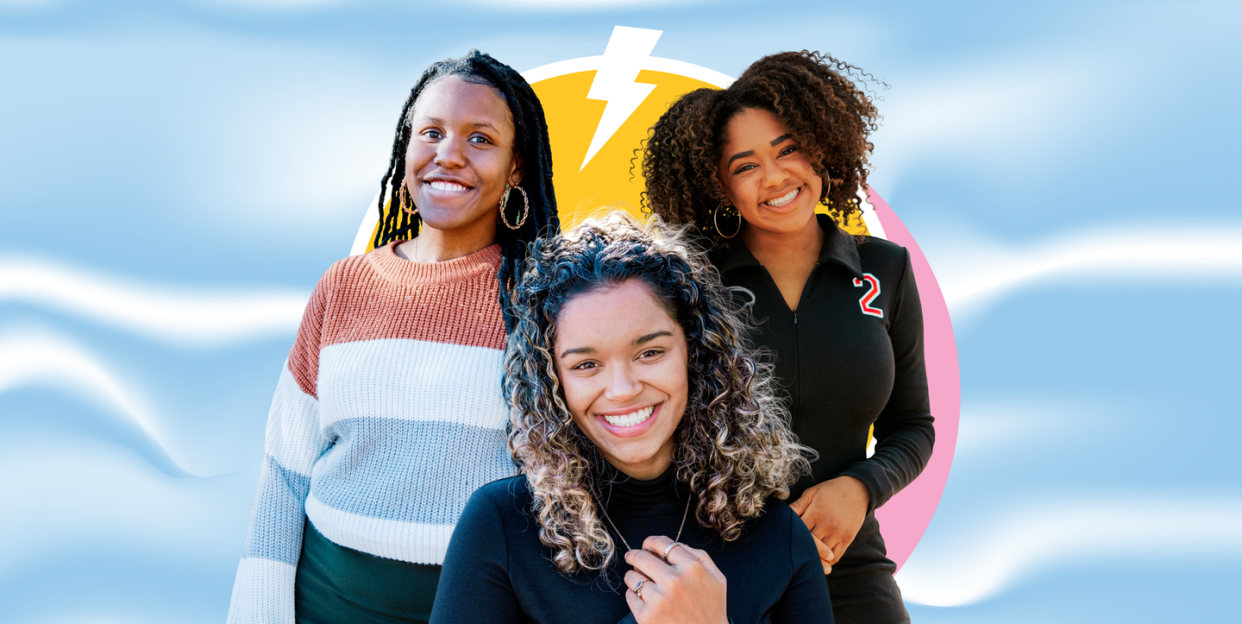
- Oops!Something went wrong.Please try again later.
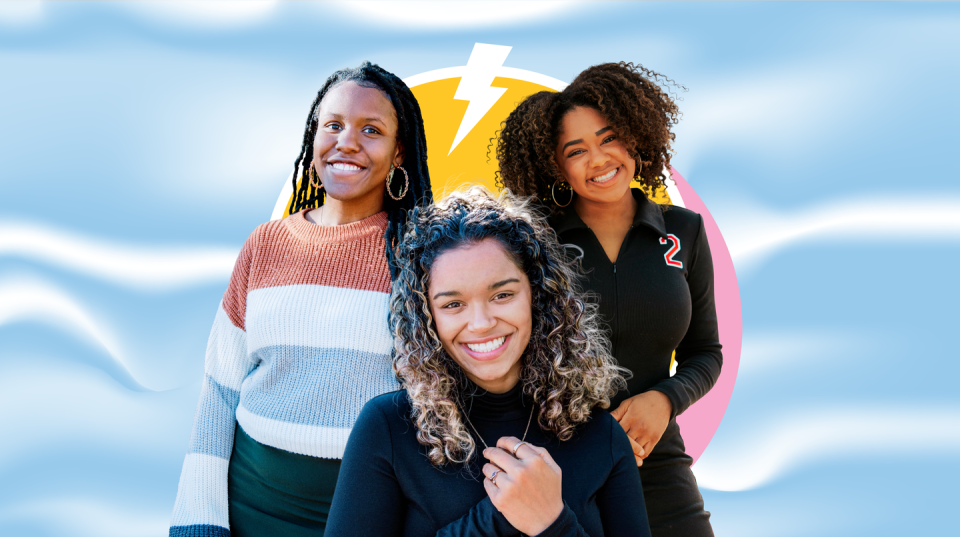
“Do you think the confederate flag is racist?”
The members of the Black Menaces, a group of five Black students at Brigham Young University (BYU) in Utah, pose the question to their mostly white peers. The group is filming a video for TikTok, and as they lean their tiny microphone toward their fellow students in the campus dining hall and study rooms, they’re met with every response from “yes” or “no,” with little explanation, to “I think it can have bad connotations.…I don’t think it, by itself, is racist—it’s a flag,” to “No…some people could fly it with racist intentions, but I know people from the South, and mostly it’s historical to them,” to “I have not thought about it.”
The variety of answers, as well as some beating around the bush to avoid the issue, is common in the Black Menaces’ videos. Made up of Sebastian Stewart-Johnson, Rachel Weaver, Nate Byrd, Kylee Shepherd, and Kennethia Dorsey, the Black Menaces are bringing awareness to the experiences of marginalized groups at their conservative, religious university. They ask their peers and faculty members questions about identity (“Should queer students be allowed to date on campus?”), race (“Does reverse racism exist?”), and Black history (“Do you know who this is?” [shows an image of Coretta Scott King]). BYU, the private institution that the Black Menaces and their peers attend, is sponsored by The Church of Jesus Christ of Latter-day Saints, also known as the Mormon Church. Of the over 30,000 students who attend BYU, less than 1 percent are Black. (For the population of Provo, Utah, where the school is located, that number goes up by only 0.1 percent).
The Black Menaces are relatively new to social media, but their following—and impact—have exploded since they first began publishing content online. The group officially started on February 8, 2022, when they uploaded their first video onto the short-form video platform TikTok. Dorsey says it was a reaction to Dr. Brad Wilcox, a professor of ancient scripture at BYU, who had given a speech at a youth fireside chat in which he responded to a question about why the LDS Church did not allow Black members to become priests until 1978. In his speech, Wilcox said, “Maybe instead of saying, ‘Why did the Blacks have to wait until 1978?’ maybe what we should be asking is, ‘Why did the whites and other races have to wait until 1829?’” Dr. Wilcox has since apologized for his statements, and the university posted a statement on February 8 stating that the professor is “committed to learn from this experience.”
Racist comments from professors are just one of a myriad of uncomfortable situations students of color at BYU must navigate, and one of many reasons the Black Menaces are doing what they’re doing. They’ve also drawn attention to the daily microaggressions that nonwhite and marginalized groups attending predominantly white institutions often face from their peers. “Their [privileged white students’] experience before coming to BYU is extremely limited with people who don’t look like them and don’t have the same experiences as them. So when they encounter people who don’t look like them, they don’t know how to interact,” says Weaver. “Their only experience is stereotypes they receive from the media. So that makes the culture very white, very rich, very cisgendered. And if you don’t fall into those categories, you are going to feel othered or marginalized in some capacity.”
The group calls themselves “menaces” to reform what the word means. “Most people who fought for equality throughout history were considered menaces to society, like Martin Luther King, Jr., Gandhi, and other civil rights leaders, when in reality they were doing so much good,” the group states in an email.
Since February, the Black Menaces’ platform has grown exponentially. At the time of reporting, the group had nearly 701.5k followers and 24.1 million likes on TikTok, plus 28.7k followers on Instagram—and those numbers (as well as their influence) are bound to keep increasing.
Women’s Health spoke to three women members of the Black Menaces—Rachel Weaver, Kennethia Dorsey, and Kylee Shepherd—about how they first got involved with the group; what it’s like having conversations about racism and inequality as a Black person in a predominantly white, conservative space; and what they see as the future of social media activism.
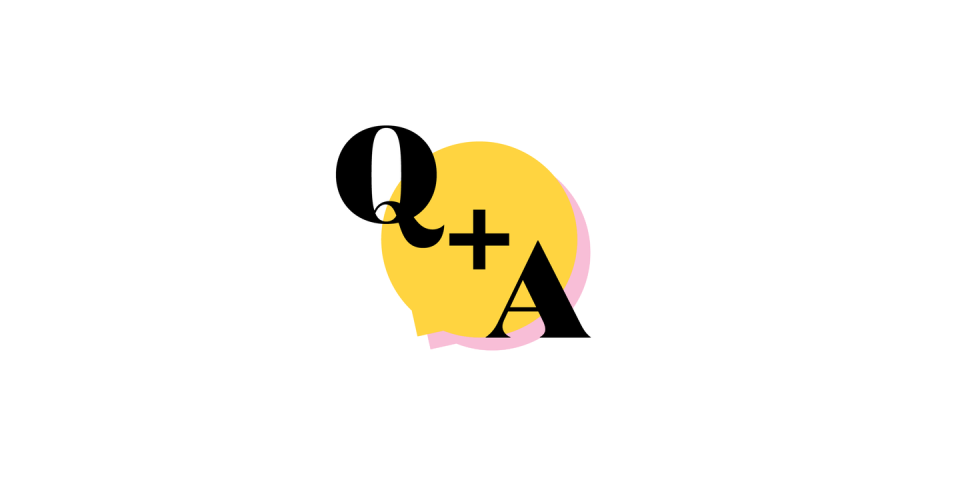
WOMEN’S HEALTH: Tell us about your background. Where did you grow up? How did you get to BYU? What are you studying? And what are your post-graduation goals?
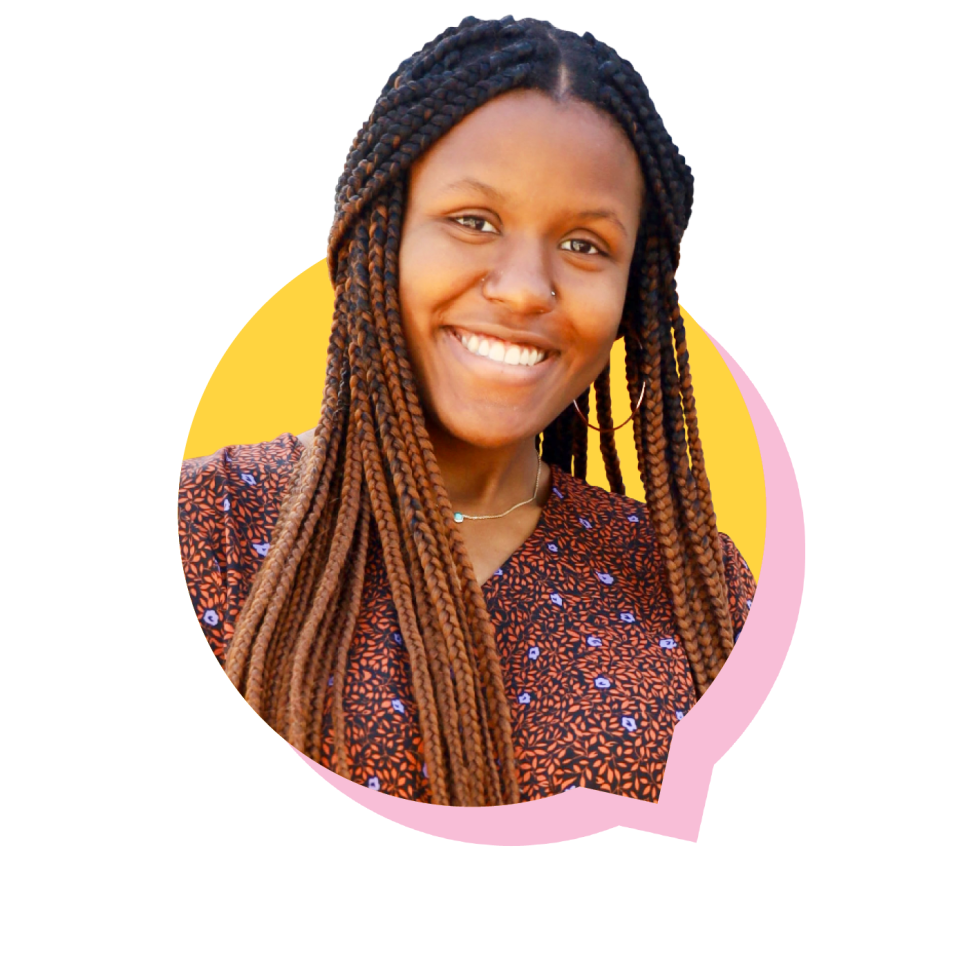
KENNETHIA DORSEY:
I’m from Nashville, Tennessee. I’m a junior studying advertising, so I graduate next year, and post-graduation, I’m hoping to move to New York and work as an art director for an advertising agency.
And how I got to BYU is I took part in their Summer of Academic Refinement (SOAR) program through the Multicultural Student Services Office. It was the first time I was exposed to BYU other than hearing about the university at church because I grew up LDS [a member of The Church of Jesus Christ of Latter-day Saints]. I participated in the program during the summer before my senior year of high school and just really fell in love with the school.
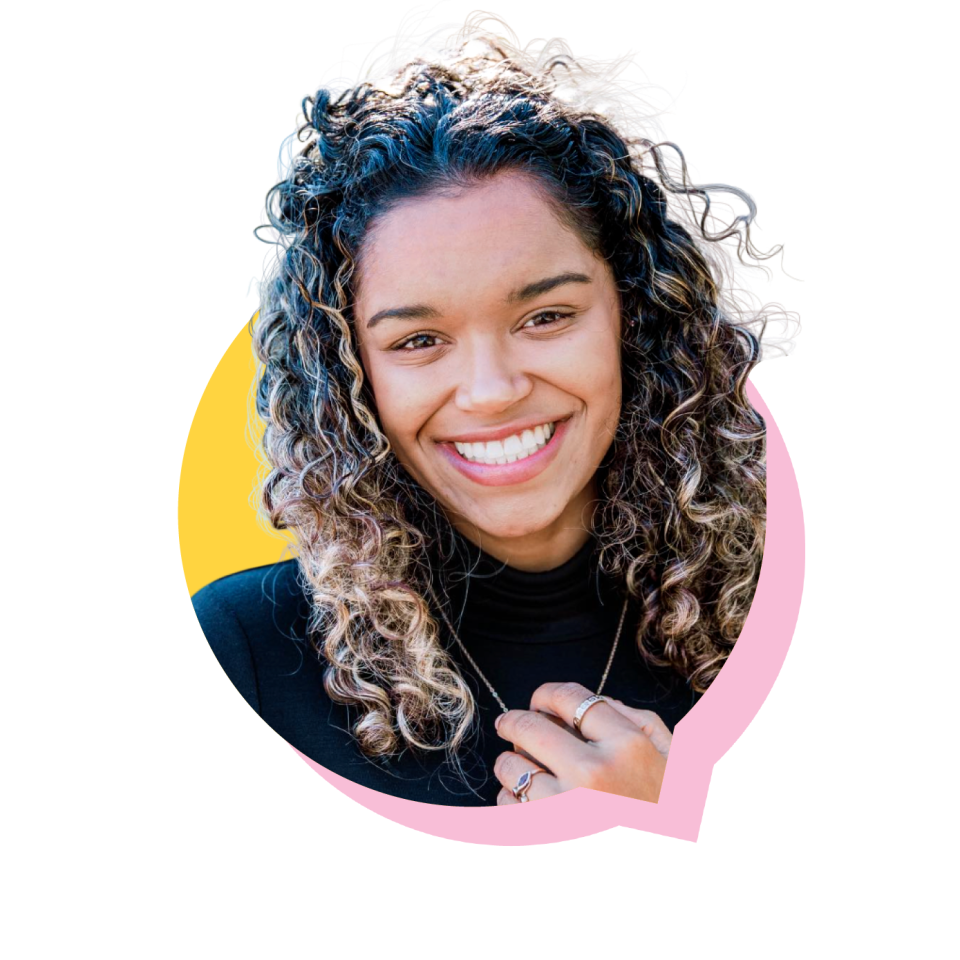
KYLEE SHEPHERD:
I’m a junior as well, and I’m studying psychology. I’m from Bakersfield, California. I’m kind of undecided about my post-grad career plans. I also graduate next year. As of right now, I’m deciding between becoming a school psychologist, a school social worker, or a teacher.
Like Kennethia, I also attended a university-sponsored summer program; it was called EFY—a camp specifically for youth—and it was a weeklong church camp on BYU’s campus. After the program ended is when I decided I liked BYU and wanted to go here.
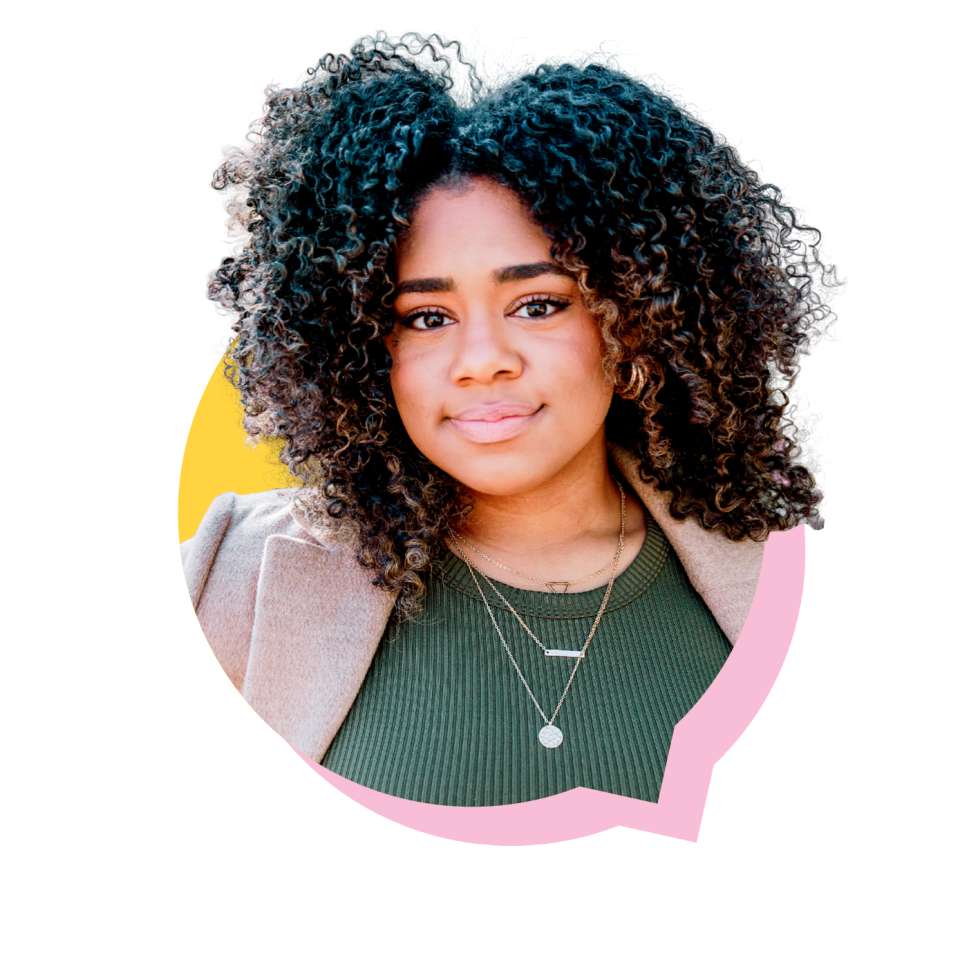
RACHEL WEAVER:
I’m from Chicago. I’m a senior at BYU, so I’m done this summer. After BYU, I hope to work in diversity and inclusion. I’m not sure in what industry yet, but I have an internship this summer with an advertising agency, so hopefully that’ll be good. I also want to move to New York, but I plan to stay in the area for a while to save up money, and so I can be roommates with Kennethia.
I kind of always wanted to go to BYU once I became a member of the church. I felt BYU would be the best place for me spiritually; I wanted to be around people who would encourage me to live my faith and follow its practices, especially at this time in my life.
▼
WH: How did you all get involved in the Black Menaces?
KD: Our mutual friend, Sebastian, was actually the one who created the account. We had been talking about doing something to highlight Black voices on campus but didn’t know yet how we wanted to do that exactly. So, when a man in our church, Brad Wilcox, said some controversial things during a fireside chat, we made a reaction video to it—that was our first video on TikTok, and it kind of blew up. We’ve all been friends for a couple of years now, but the Black Menaces is something new for us.
▼
WH: What have you gotten out of participating in this group, and what do you hope to get out of it in the future?
KS: I think our goal is to create the most change possible and highlight the things minority groups face at PWIs [predominantly white institutions].
KD: I think the biggest thing we’ve gotten out of this is having a large platform to express what it’s like attending BYU, and honestly, what it’s like going to a PWI in general, because a lot of minorities who attend PWIs have similar experiences to us. I’ve also been able to see BYU from a different perspective because although I expected certain responses to our questions, I didn’t realize just how many people would end up supporting us and agreeing with us. It’s a very isolating experience being Black at BYU, but that really gave me a glimmer of hope.
▼
WH: What’s the most surprising answer you’ve received to one of your questions, and why was it unexpected?
KS: For me, I don’t think there’s been one that has stood out the most. I mean, we kind of already know how most people are going to respond, so I think the most surprising answers are when they are opposite to what we expect.
KD: The responses we got for our video where we asked students if they’d consider themselves a feminist were the most surprising to me. I was really surprised by how many nos we got, especially from women. Some of them didn’t even know what it was. I was like, “What do you mean, you have to do more research about it?” It really baffled me.
▼
WH: You often respond to people’s answers with simply, “Perfect, thanks,” “Okay,” or “Purrr.” You really let everyone’s answers speak for themselves. Why did you make the decision to respond like that? Is it ever hard not to engage when someone says something you don’t agree with?
RW: It wasn’t an active choice, to be honest with you; it kind of just happened naturally. In our experience, when engaging with people who have limited experience with marginalized communities, sometimes it’s better to just say “okay” and walk away. We can’t mentally handle educating every single person and explaining to them why their thinking is problematic; we’re students, at the end of the day, and we have to be able to exist in this environment. I joke that I’m a part-time DEI [Diversity, Equity, and Inclusion] coordinator for the school because we’ve kind of embodied that role, but we really don’t have the capacity to educate every single person we talk to. We also don’t want to condemn people straightaway. Our whole point, as a group, is to create awareness around the reality of the environment we exist in, and I don’t think people would feel comfortable sharing their authentic views if we immediately reacted.
KD: If someone does have follow-up questions after the filming, we do explain the concept to them. Most of the time, though, they don’t, and so we’ll just be like, “Okay, that’s it.”
KS: By asking these questions, we might not be educating that one specific person, but we’re at least showing other people that, “Hey, if you answer similarly to them, you might want to rethink things.” Our goal moving forward is to be more educational—not necessarily directly to the person we’re asking the question to, but in a broader, community sense. We don’t want anyone to feel attacked, so there’s a fine line with how we choose to engage with people.
RW: It’s not that we don’t want to educate people; it’s really case-by-case. If we do choose to educate, we want to educate on a mass scale because those one-on-ones can be overwhelming. My main job is as a student, not a diversity trainer.
▼
WH: What do you wish people understood about having conversations on racism and inequality, particularly for a Black person in a predominantly white, conservative, religious space?
KS: It’s not our job to educate everyone. I think there’s a lot of things the individual can do to educate themselves. We get the questions, “What can I do to support you guys? What can I do to be better?” all the time, and we give the same answer, which is to educate yourself. Black history is history, and there are certain things that everybody should know regardless of the color of their skin. These conversations are supposed to make you uncomfortable; you can’t grow unless you’re uncomfortable, so we need people to start having these conversations so they’re forced to consider what they really believe in. We want people to form their own opinions, and not just blindly follow their parents’ beliefs or what the church tells them. We hear, “Oh, I’ll have to think about it. I’ve never thought about it before,” a lot. That’s a privilege afforded to our white peers, while these things are an everyday reality for us.
▼
WH: Have you seen a cultural shift at BYU since the start of the Black Menaces?
RW: I’d say cultural shift is a strong phrase to use; however, interpersonal relations have definitely shifted for us. People come up to us every day saying, “We’re grateful for what you do. Thank you guys for your TikToks,” but I wouldn’t necessarily label that as a culture shift. We’ve noticed the way people interact with us change, which helps us to know we have more allies than we’d previously thought. But no, there hasn’t been a campus-wide shift. I wish! But we’re not at that point yet.
KD: Yeah, I agree. At BYU, as a whole, nothing’s really changed. I think that for a cultural shift to happen, we’d have to see changes implemented by the university’s administration, and that’s not something I think will happen anytime soon.
▼
WH: Do you think your questions have helped change the mindsets of some of the people you’ve interviewed?
KS: I think so. There have been instances where the person we interviewed will comment on the video, saying, “Hey, thanks for asking me this question. I realized I know nothing about this.” So I would hope, even if they’re pretending a little bit, that some people have changed or at least are trying to, even if it’s just one of their opinions on one topic.
▼
WH: What do you see as the future of activism in the Black community, particularly on social media?
RW: With previous social movements, traditional media has largely controlled the narrative. I think what’s really cool about social media is that it puts the power back into the hands of the people, the oppressed. It gives people the opportunity to share their own stories in a way that wasn’t possible before. I’m excited to keep seeing people using social media to accurately portray themselves and bring awareness to inequality.
▼
WH: Do you see the Black Menaces as part of that? What’s your vision for the future of this group?
RW: I think we’re encouraging people to share their story in the way that best fits them, and allowing them to be transparent about what their experience is. I think long-term, we want to continue to build community and help people tell their stories.
KD: I hope we’re increasing the amount of activism on other campuses, I’m not sure. With the Black Menaces, we hope to continue growing our platform and bringing awareness to campus climates at PWIs. We eventually want to spread out to other PWIs to make sure minority students are being heard on different campuses. Hopefully we’re able to create a significant enough spark to the point where people are like, “Go, go, go!”
This interview has been edited for length and clarity.
This story was created as part of Future Rising in partnership with Lexus. Future Rising is a series running across Hearst Magazines to celebrate the profound impact of Black culture on American life, and to spotlight some of the most dynamic voices of our time. Go to oprahdaily.com/futurerising for the complete portfolio.
You Might Also Like

